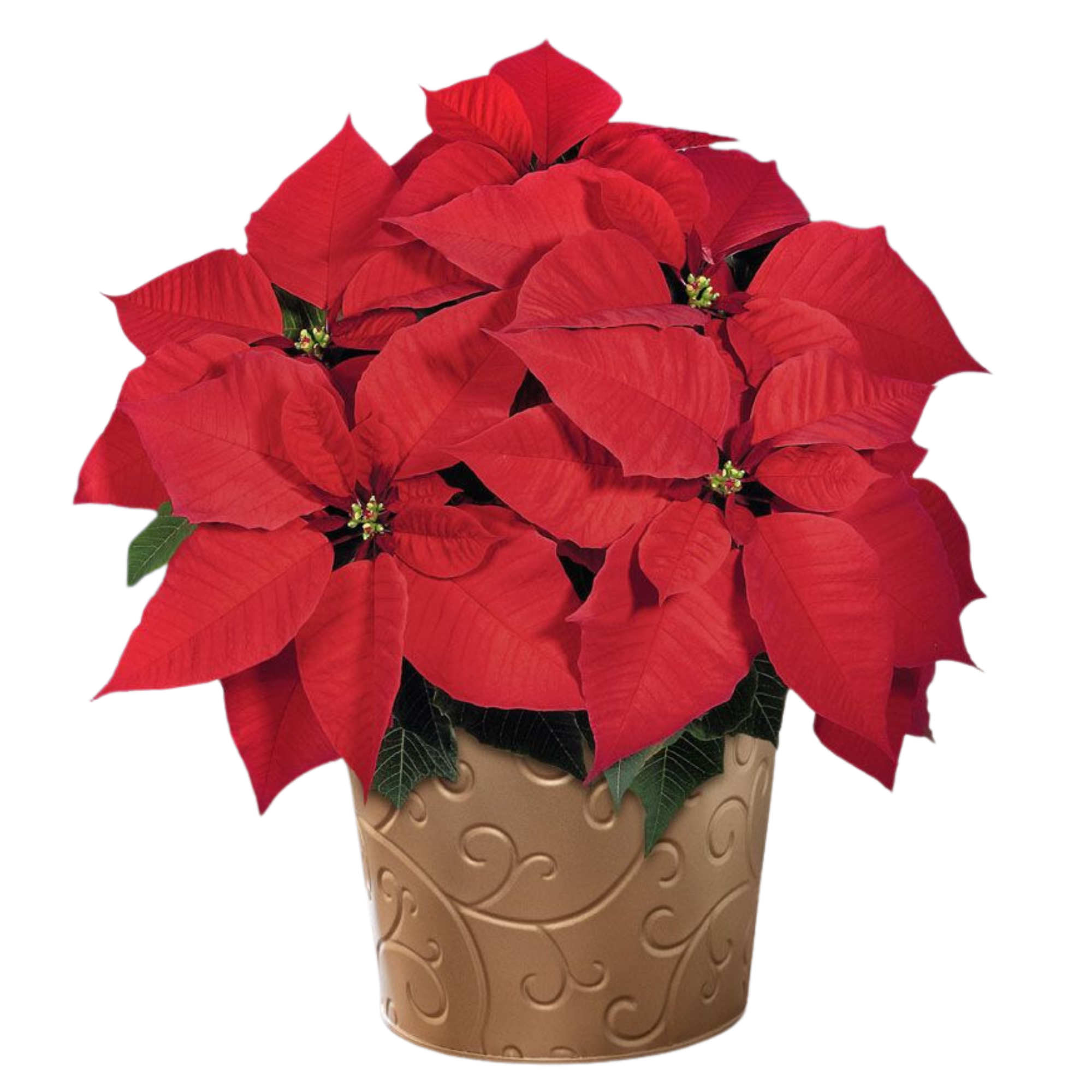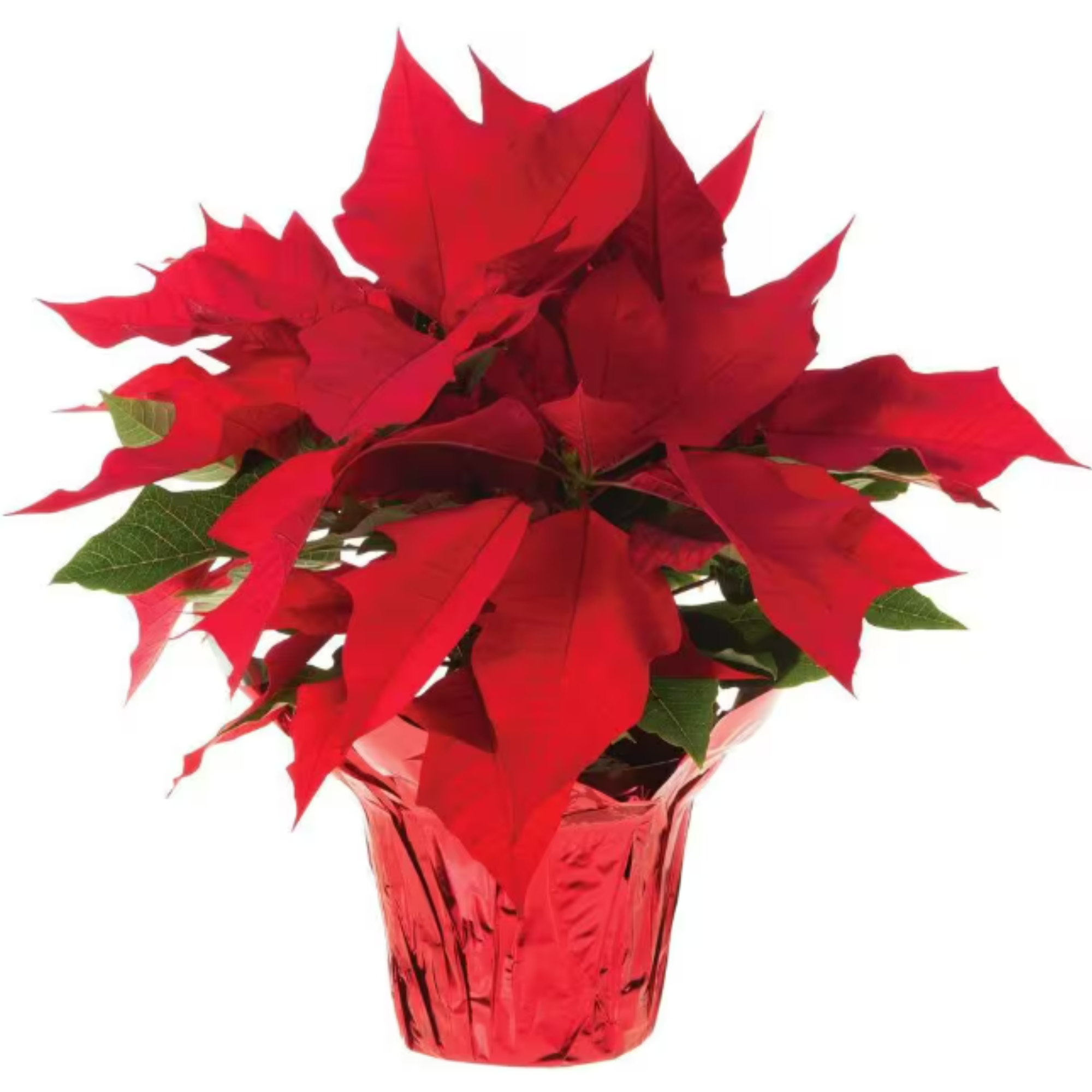When Do Poinsettias Turn Red? Learn About Maintaining This Iconic Christmas Plant in Its Merry Hues
Watch your poinsettias come alive with these care tips from a gardening expert

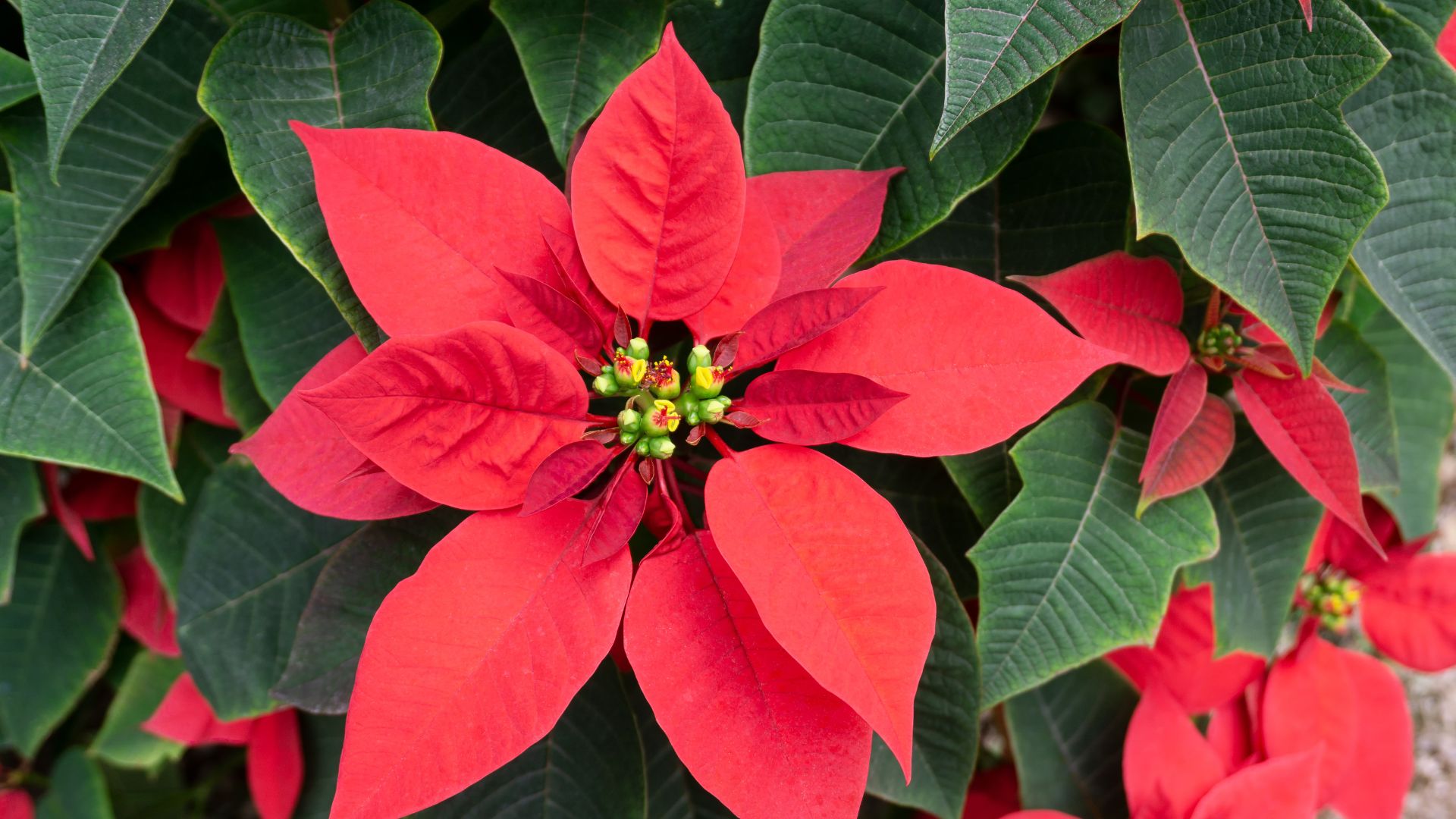
The Livingetc newsletters are your inside source for what’s shaping interiors now - and what’s next. Discover trend forecasts, smart style ideas, and curated shopping inspiration that brings design to life. Subscribe today and stay ahead of the curve.
You are now subscribed
Your newsletter sign-up was successful
When you think of Christmas, the first plant that you think of is probably poinsettias. As soon as I spot these plants out and about, I automatically channel my inner Michael Bublé and think it's beginning to look a lot like Christmas.
The key to this plant fitting into the season's spirit is the nostalgic red hue that blankets its leaves come winter. But sometimes, you'll find that your poinsettia may stubbornly stay green longer than it should.
If you're wondering when your poinsettia will turn over a new, red leaf, or how to help it along its way, we have plenty of poinsettia care insight from our gardening experts to keep you sorted. Trust that these simple steps will have your home looking as Christmassy as ever in no time.
When Do Poinsettias Turn Red?
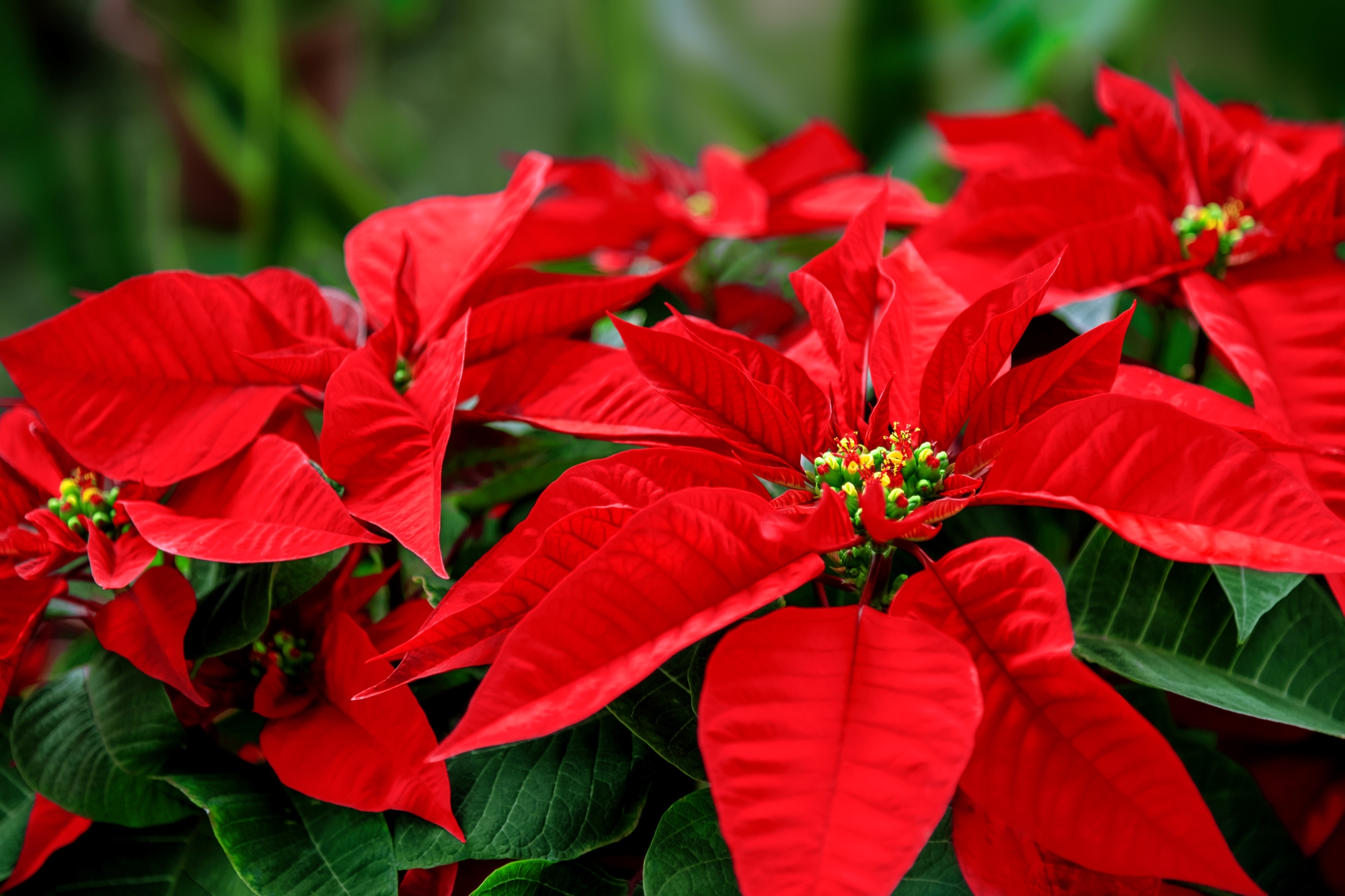
In conversation with gardening expert Tony O'Neill, he tells us that poinsettias naturally begin to turn red in response to shorter daylight hours, typically in late fall or early winter. Of course, this Christmassy hue will only develop on red poinsettias, so be sure to pay attention to the variety you prefer upon purchasing.
Tony explains that this vibrant transition happens in the plant’s bracts, identified as the modified leaves that surround the small, yellowish flowers. "Under normal conditions, poinsettias will start showing color in November and continue through December," he notes. "Perfectly in time for the holiday season."
This color trigger in the absence of sun is exactly why experts recommend keeping your poinsettias in the dark around the onset of winter.
How to Make Your Poinsettias Turn Red?
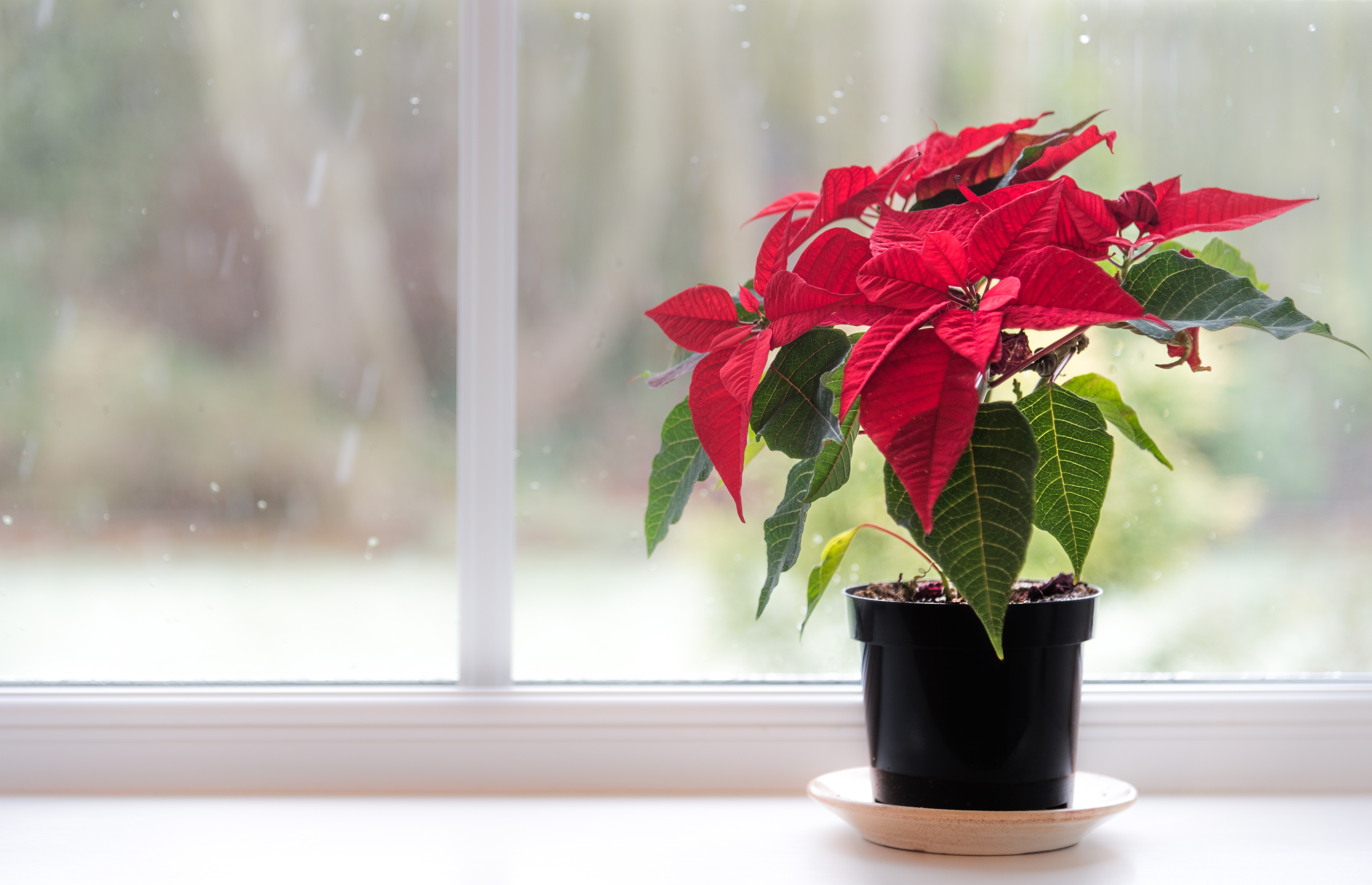
To help your poinsettia turn red again after the blooming season, Tony tells us you need to simulate the short days and long nights of winter, and that involves understanding when to put poinsettias in the dark. Here's a detailed step-by-step guide:
The Livingetc newsletters are your inside source for what’s shaping interiors now - and what’s next. Discover trend forecasts, smart style ideas, and curated shopping inspiration that brings design to life. Subscribe today and stay ahead of the curve.
1. Prune the plant: "Once the bracts have faded after the holiday season, usually around February or March, prune the poinsettia back to about 6 inches in height," he advises. "This helps promote healthy new growth in the spring."
2. Move outdoors: Next, when all danger of frost has passed in late spring, he encourages moving your poinsettia outside to a sunny spot where it can enjoy indirect sunlight for at least 6 hours a day. During this time, it's important to regularly water the plant, while also treating it to a balanced liquid fertilizer every 2 weeks. We recommend this highly-rated Poinsettia Liquid Fertilizer from Amazon.
3. Pinch back the stems: "Around June or July, pinch back the stems by about 1 inch to encourage branching and to give the plant a fuller, bushier appearance," says Tony. He recommends repeating this pinching process again in late August if your plant is growing vigorously.
4. Prepare for darkness: He goes on to explain that starting in late September or early October, the plant will need complete darkness for 14-16 hours every night to trigger the color change. "You can cover the plant with a lightproof box or place it in a dark closet from around 5:00 PM to 8:00 AM each day," he notes.
5. Return to light during the day: During the day, he tells us the poinsettia should be placed back in a sunny location where it can receive bright, indirect light for about 6-8 hours. "This balance between long periods of darkness and bright light is crucial for initiating the color change," Tony explains.
6. Water consistently: "Continue to water the plant as needed, ensuring the soil stays slightly moist but not waterlogged," he says. "Avoid letting the plant sit in water as this can cause root rot."
7. Avoid fertilizing: According to Tony, it's best to stop fertilizing the poinsettia once you start the dark/light treatment in September. He notes that fertilization is not necessary during this period and can actually disrupt the color-changing process.
8. Expect color change: By mid-to-late November, he finds that the poinsettia's bracts should begin to show color, right on time for the holiday season. Once the bracts have fully colored, you can finally discontinue the dark treatment and enjoy your vibrant plant.
We've heard of the viral poinsettia trick to care for it post-cutting for a bouquet, but this method is a brilliant hack that caters to your live potted poinsettias for that lush red hue.

I'm Tony O'Neill, a gardening expert and best-selling author. I am an educator with a thriving YouTube channel that has 426,000 subscribers and receives over 1.4 million monthly views. Through my award-winning website, simplifygardening.com, I share my passion for gardening and sustainability. I've authored books including "Composting Masterclass," "Your First Vegetable Garden," and "Simplify Vegetable Gardening," empowering individuals to cultivate their own green spaces.
How to Make Your Poinsettias Rebloom?
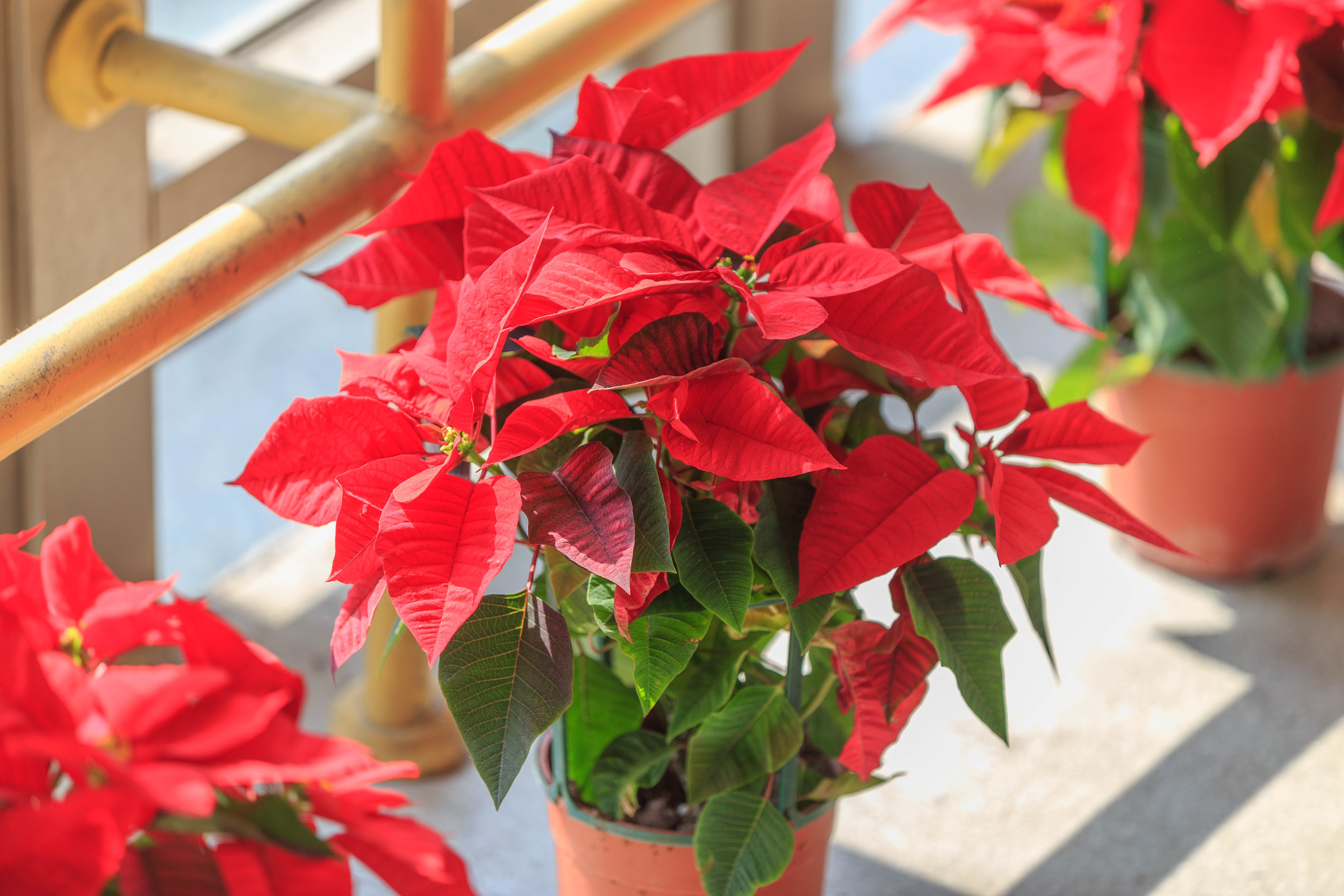
Getting your poinsettias to bloom involves a process similar to turning them red. As we know by now, shifting them from bright windowsills to darker nooks in the evenings is a huge help to their growth and how they will rebloom.
However, during the daytime, Tony recommends moving the plant back into bright, indirect light for six to eight hours, so that the plants can gather the energy they need for color production. He encourages plant parents to continue watering as needed and to preferably house the plant in a room with temperatures between 60-70°F for flourishing foliage.
They're one of the best indoor winter plants to have in your collection and following these steps will definitely result in poinsettias blooming in all their glory. It might seem like a bit of work but it will leave your plant looking seasonally spiritful.
You can't go wrong with a classic like poinsettias, especially when they're doused in that rich wintry red that we know and love. And thanks to Tony's brilliant insight into keeping poinsettias red, you can be sure that this indoor Christmas houseplant is looking its best throughout the holiday season. Plus, you can also follow his tips to get them to rebloom for a forever-flowering poinsettia plant.
FAQs
What is the Life Expectancy of a Poinsettia Plant?
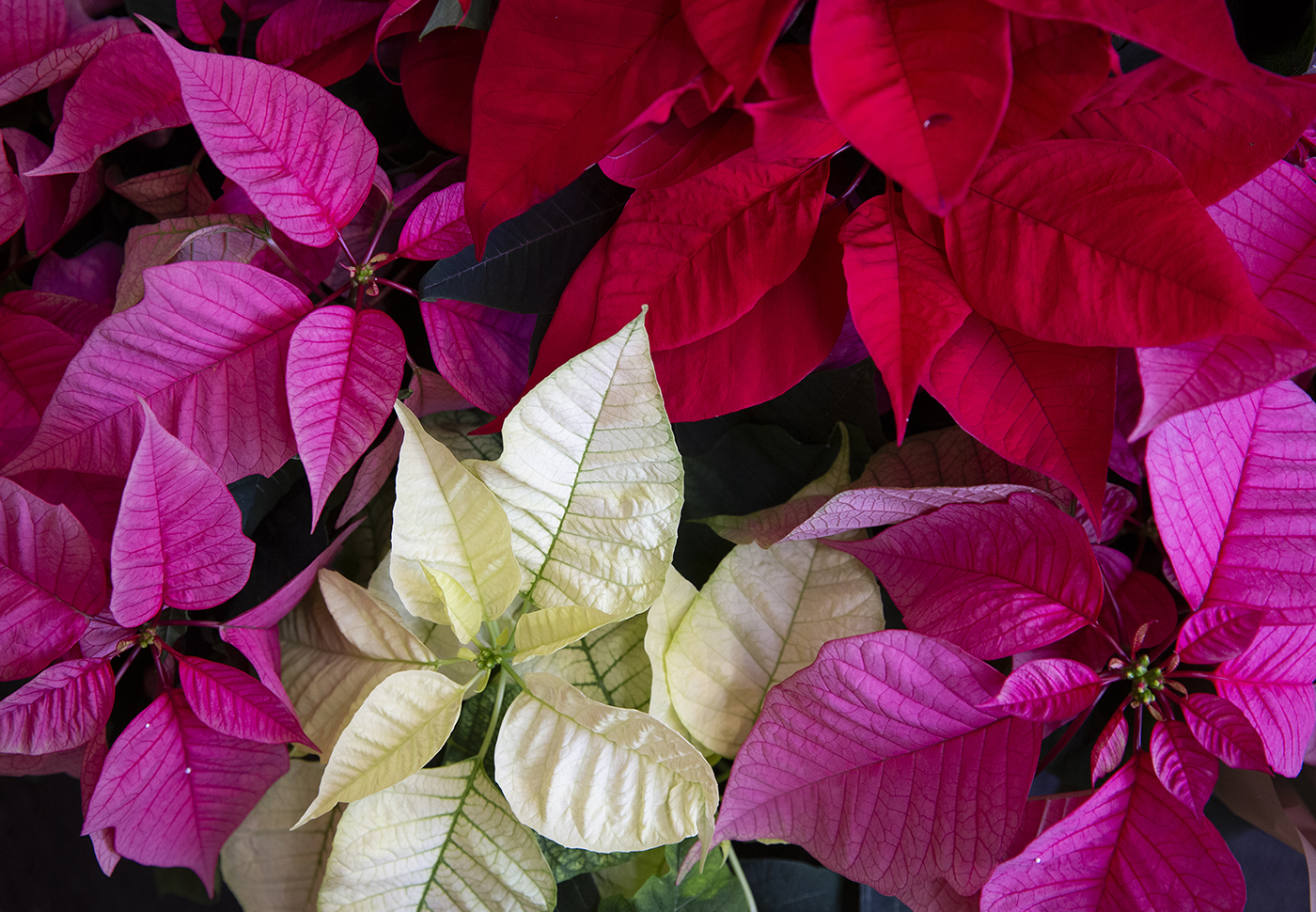
Although poinsettias are typically known to be Christmas plants, they can continue to grow well past winter, thriving in summer and spring. Given the right care and regular maintenance, these merry plants can actually live on for over ten years.
So, if you adopt a poinsettia, or grow your own, you can always pass your plant on, adding to the sentiment of Christmas traditions.
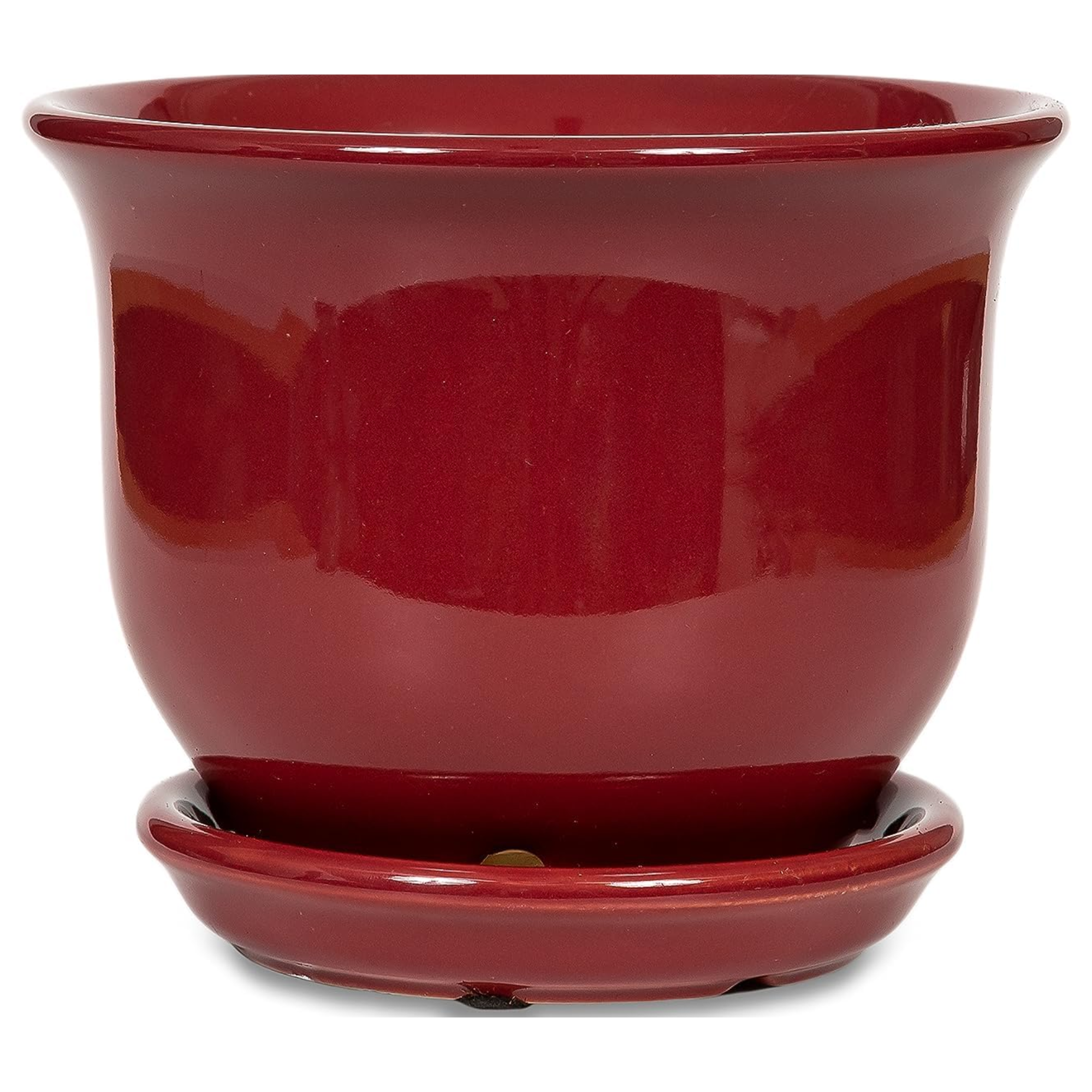
Price: $27
Size: 8"
Double drenching is the latest trend, so why not try it with your ravishing plants and planters? This red ceramic planter from Amazon is ideal for many plants, including poinsettias. Although any size of large pot can be used for these blooms, they typically thrive in pots that are 8-10 inches. This lovely red pot is 8 inches x 8 inches and comes with one drainage hole and saucer.

Amiya is a Home Wellness Writer at Livingetc. She recently graduated with a Masters Degree in Magazine Journalism from City, University of London, and has lent her words to beauty, fashion, and health sections of lifestyle publications including Harper’s Bazaar and Women’s Health. Her experience as a research analyst has equipped her with an eye for emerging trends. When she’s off the clock, she can be found reading, listening to music, or overanalyzing her latest Co-Star update.
